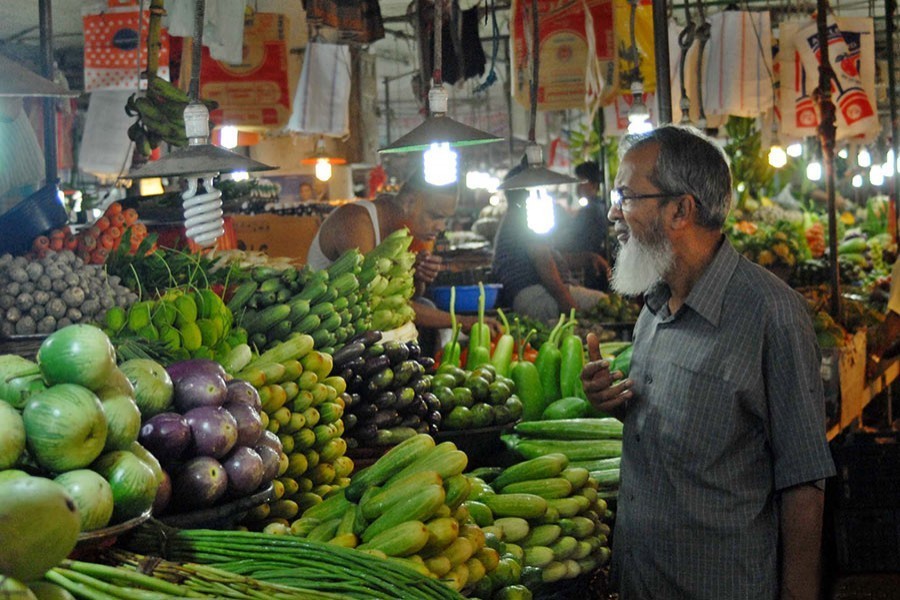Market of essential commodities has started becoming jittery ahead of Ramadan, the month of siam or fasting. Rice price has apparently remained stable but at an artificially raised earlier level. Significantly, despite bumper Aman harvest, rice price did not decline this harvest time although it had long been the market trend. When the coarse rice varieties are priced between Tk 50-54, BRRI-28 between Tk56-60 and finer types between Tk75-85 a kilogram, prices are certainly on the high side. Wheat has become dearer to the extent that even these price levels of rice look rather cheaper and no wonder that many are turning to rice from flour ---coarse (atta) and fine.
It is exactly at this point, the demand for TCB's subsidised rice, flour and oil has gone up. There has been a serious allegation of maldistribution of these commodities against people directly involved with distribution from the trucks at some spots. These operators sell sacks of rice (30 kgs) at a higher price---Tk 300 more to Tk 900--- in collusion with some dishonest retail traders. So, the needy have to return empty handed.
If the deserving poor are thus deprived of their share before the Ramadan, they will be even at a more disadvantage. Others of the higher echelons of society are also likely to be held hostage to business syndication if unnatural market volatility cannot be arrested. Let alone the price escalation during the Ramadan, price hike of broiler chicken by Tk 30-40 a kilo and of eggs by Tk15-20 a dozen over the past three four days pushes the common consumers to the brink.
It was, however, not unexpected given the handle the government gave to traders by raising the prices of gas and power at this crucial juncture. Businesses are always on the lookout before each Ramadan to engineer a process of catapulting prices of essentials, particularly the items in high demand during the time. This time the snowballing effect has only started to take place, where it will end nobody knows.
The Bangladesh Bank, however, claims that the five items in high demand---sugar, onion, chickpea, cooking oil and date--- will be available in sufficient quantity. There was no problem with opening of letters of credit (LCs) for ensuring that these commodities reached the country's shores well in time. The BB-furnished LCs are for higher quantities of each separate item compared to the previous year. One silver lining is that it is the harvesting time of onion, the cultivation of which has been more extensive than before. The price of onion is within the tolerable range. This is however not the case with zinger and garlic. Prices of most other spices have soared abnormally too.
Even if the BB's hope is not misplaced, is there any guarantee that the prices of the five items, particularly sugar and cooking oil, will remain at the retail level of the fixed government rates? Both sugar and cooking oil are sold at much higher rates in the open market. In case of sugar, it is higher by Tk 20-30 for a kilogram of sugar. The incompatibility between the fixed rate and the actual market price of edible oil has diminished appreciably but who knows how things will turn out with business syndicates making a notorious move to get their way?
Low-income and fixed-income people have been at the receiving end ever since the pandemic has made a heavy inroad into their pockets--- which was further aggravated by the Ukraine war. With the currency depreciation, their purchasing capacity has gone on a tailspin. Now any commodity's price rise is the proverbial last straw on the camel's back.
Given the BB's claim, there should not be any shortage of Ramadan items but who will monitor that those get to retail level smoothly and are sold with a reasonable profit margin? The ministry of commerce with various other ministries and departments can ensure no foul play will take place at any end or in between.


